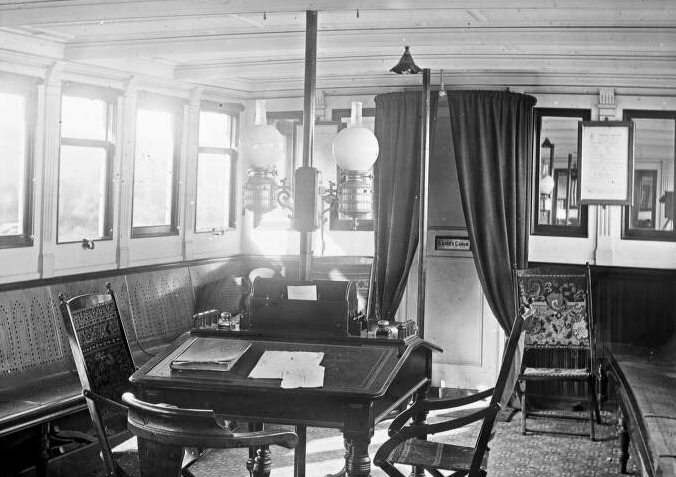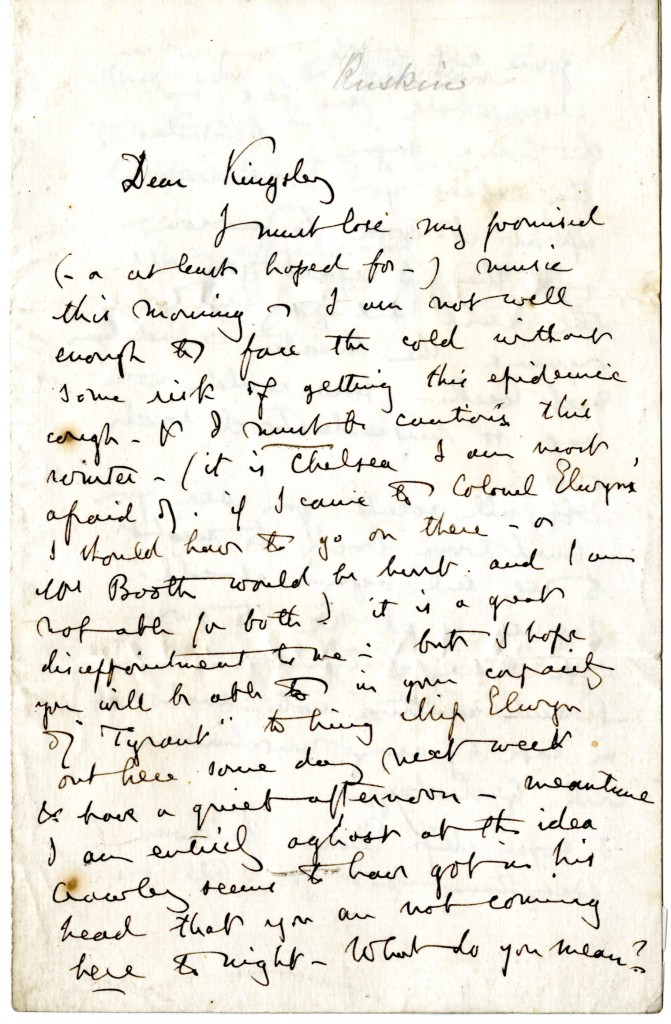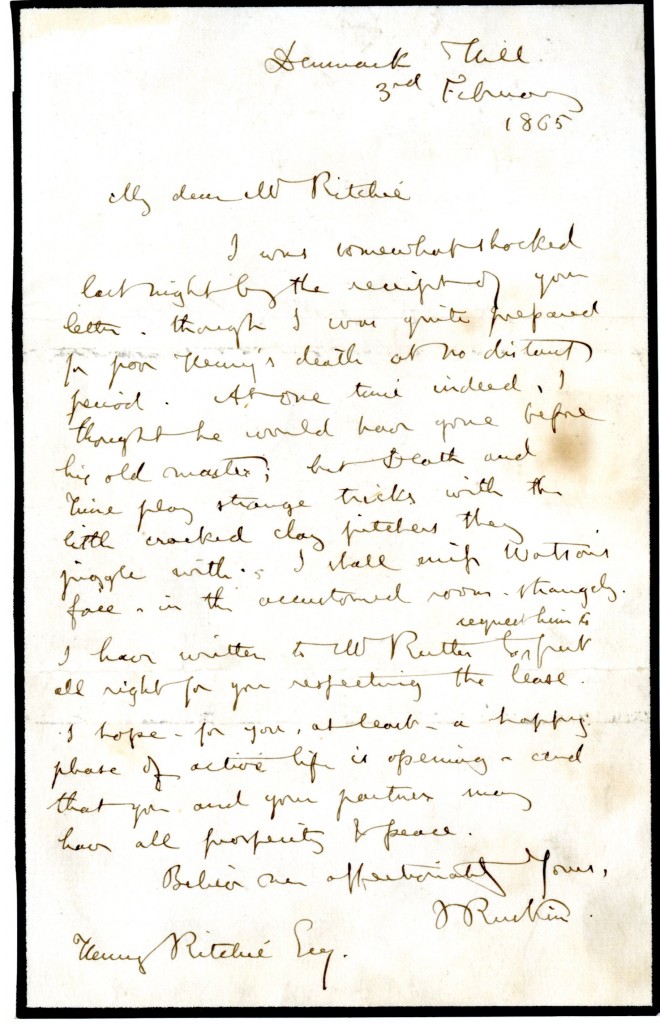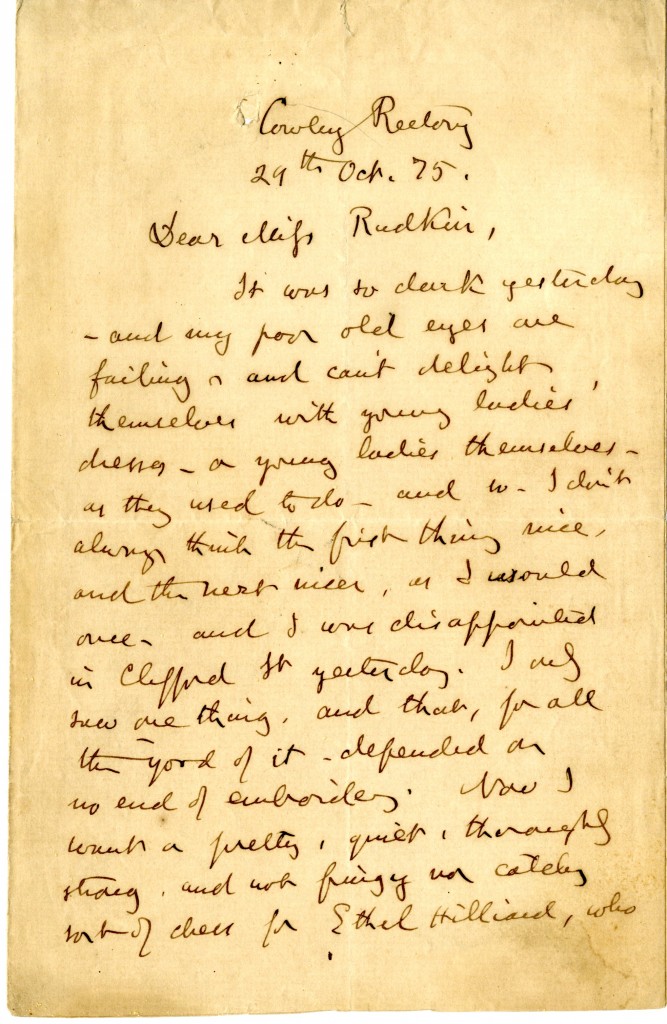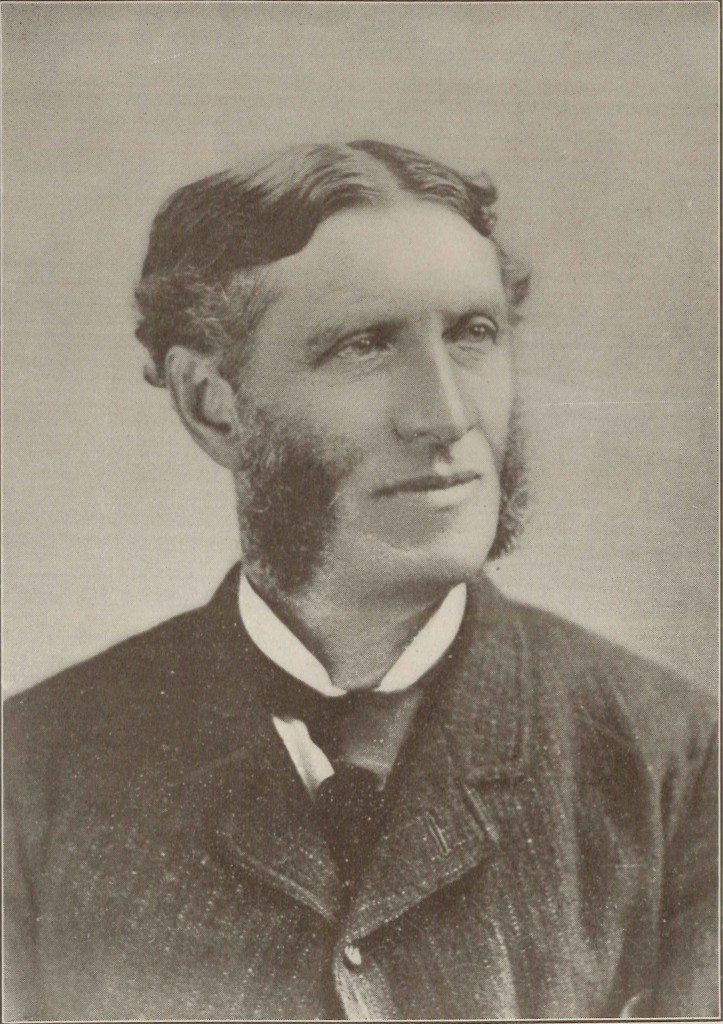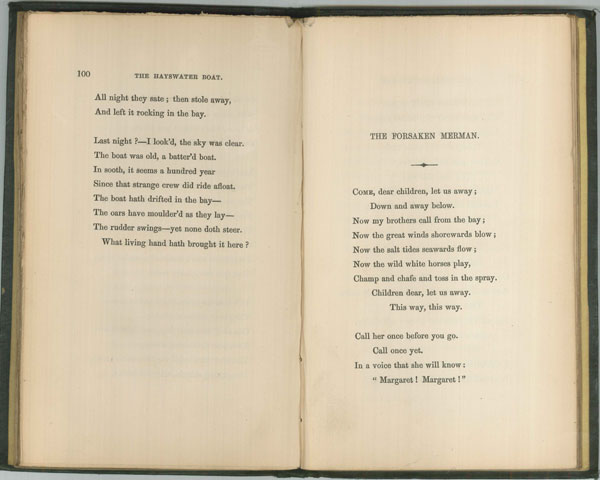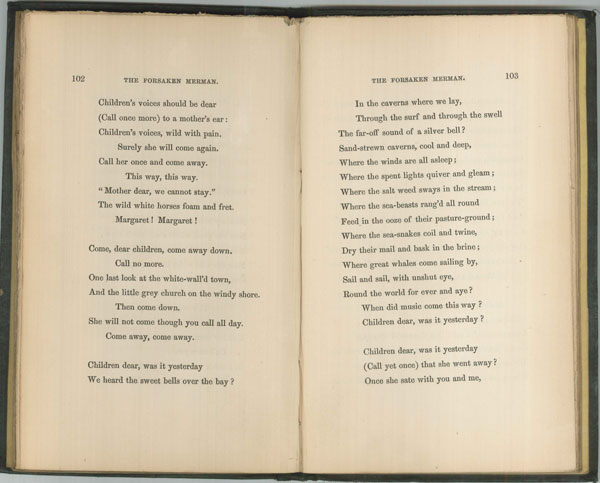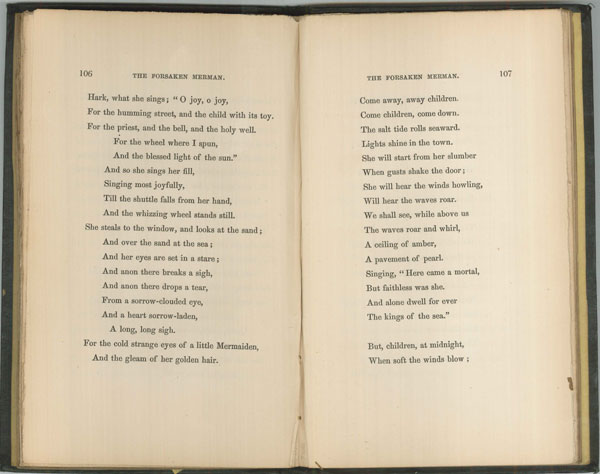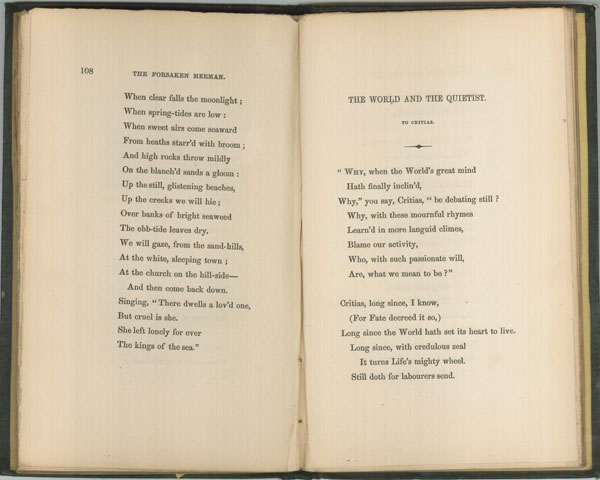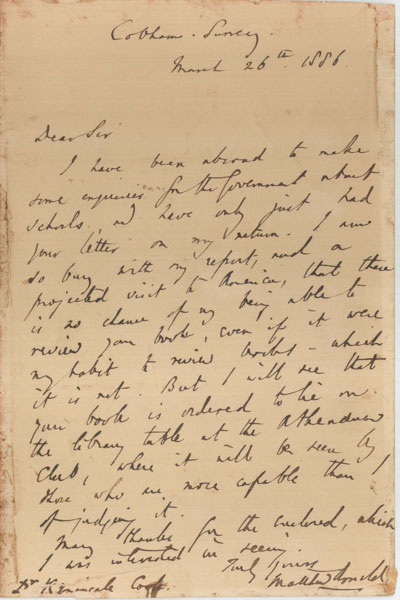By Melinda Creech
Graduate Assistant, Armstrong Browning Library
The Oceanic Steam Navigation Company, more commonly known as the White Star Line, was a prominent British shipping company. Founded in 1845, The White Star Line, operated a fleet of clipper ships that sailed between Britain, Australia, and America. The ill-fated Titanic was perhaps their most famous ship. The Armstrong Browning Library has a few connections to the Titanic. One connection relates to a set of postcards that disappeared with the Titanic and another relates to the author of the hymn, “Nearer, My God, to Thee,” the song that was purportedly playing as the Titanic sank. The Armstrong Browning Library’s collection includes a letter with the White Star logo in its heading and several letters written on board ships or while individuals were preparing to board ships. The letters, written between 1841 and 1912, are lines from people who were passengers on SS (Steamer Ships), RMS (Royal Mail Steamers), or HMS (Her Majesty’s Ship). It is interesting to note that one of the first purposes of steamers crossing the Atlantic was to deliver the mail. These lines, written from steamer ships, may shed some light on the adventure and danger presented by steamer travel in the late nineteenth century.

Rose Kingsley. Courtesy of The Kingsley School. This girls’ school, still in operation today, was begun by Rose Kingsley in 1884 as the Lemington High School for Girls.
Rose Georgina Kingsley (1845-1925) was the oldest daughter of Charles Kingsley, nineteenth-century clergyman and novelist. In 1869 she joined her father on a trip to Trinidad. The Kingsley’s trip is recorded in At Last: A Christmas in the West Indies. Harper & Bros, 1871. They spent seven weeks exploring the island of Trinidad before their return to England.
Their trip began on the SS Shannon. The SS Shannon was built in 1854 as a paddle-wheel steamer by Napier and Sons of Glasgow. The first paddle-wheel steamers had begun crossing the Atlantic in 1838. The Cunard Line (the company that later built the Titanic) began their first regular steamer service with the RMS Britannia in 1840, sailing from Liverpool to Boston. The SS Shannon was a successful mail steamer for the West India Line until she was withdrawn and refurbished some time around 1875. She was converted to a screw steamer and lengthened. Her maiden voyage as a refurbished ship broke all records of speed and she only consumed 635 tons of coal. However on her second trip the SS Shannon went aground on the Pedro Bank, southwest of Jamaica and was lost. Passengers, crew, and mail were all saved. (The Shipwrecked Mariner. Vol. 23, 1876, 45)
The Armstrong Browning Library has three letters from Rose to mother, brother, and sister, written during her trip to Trinidad.
The first letter was written on board the SS Shannon.
In this letter Rose describes the “fairest ever” voyage, gives accounts of her seasickness, and tells of her father’s Sunday sermon in the Saloon. The family was always very interested in natural history, and the other letters, written after they arrived in Trinidad, are filled with Rose’s descriptions and illustrations of frangipani, bougainvillea, shells, coral, poison trees, monkeys, toucans, parrots, kinkajous, ocelots, mosquitos, and giant spiders.
In this letter Rose draws a picture of a spider, life-size. She writes: “I found […] spider in my room as big as this but that is considered quite tiny here!!”In the final letter Rose wrote from Trinidad she says, “we are coming in the Neva & that I hear she is most comfortable & the fastest ship in the Service.” In fact, the RMS Neva was a new ship, built in 1868 by the Caird and Company shipyard, accommodated 272 first class passengers, and boasted an oak and gilded saloon, furnished in walnut. The RMS Neva replaced the RMS Rhone, which was wrecked in a hurricane in October 1867 (Jampoler, Andrew. Black Rock and Blue Water: The Wreck of the Royal Mail Ship Rhone in St. Narciso’s Hurricane of October 1867. Naval Institute Press, 2013).
Rose was quite a pioneer. She traveled across the Atlantic the next year and joined her brother, Maurice, as a new member of the Colorado Springs community in Colorado. In 1872 she travelled with General William Jackson Palmer exploring the possible route of a railway from Texas to Mexico City. Her adventures are recorded in her writings, which include South by west: or, Winter in the Rocky Mountains and Spring in Mexico, Rides and Drives in the Far West, and Ulay, the Chief of the Utes.
I could not find a biography of this rather amazing woman. Perhaps this is a project that needs to be undertaken.


